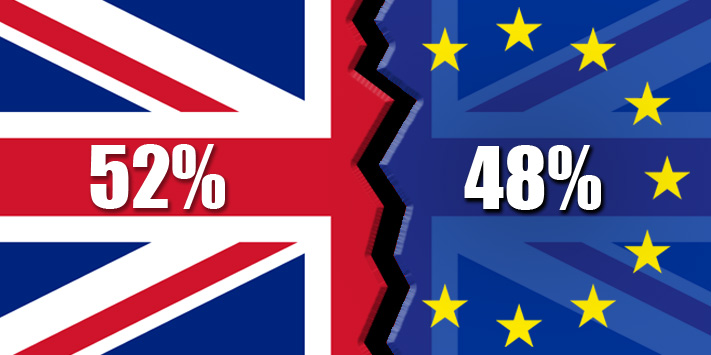
- Brexit shows the primacy of politics and emotion over economic rational calculation. It is very difficult to understand the decision of British people otherwise. Britain, or what would be left of it after potential secession by Scotland and Northern Ireland, is likely to become a less open economy with a long-term decrease in productivity potentially. What is most striking about the Brexit decision is that there does not seem to be a plan for what to do next … other than a generic call to national sovereignty, reflected in Nigel Farage’s description of Brexit as an “independence day.” Most of the pro-Brexit arguments were based on the recovery of self-government, excessive contributions to Brussels, and the control over immigration.
- When a referendum is called, people may respond not so much to the question posed, but out of a desire to punish or complaint. In this case, globalization – represented by the London and Brussels political and business elites – was perceived as being to blame for industrial decline, low wages and poor social services. The easy (and populist) response was to find a culprit. This also happened in the 1930s because of an impoverished middle class.
- Finding the culprit in Brussels was fueled by years of blaming the European Commission for anything that went wrong. This irresponsible behavior on the part of local politicians, which is quite widespread in the European Union, coupled by David Cameron’s political maneuvering to solve internal problems in the Conservative Party, has led to disaster. The outcome may now be a “little England.”
- Simple majority rule exercised once with no minimum participation cannot be the base of decisions as important as to remain in or leave the EU. Brexit won by 52% to 48%, with a participation of about 70%. This means that only slightly more than 36% of eligible voters were in favor of leaving. For such important decisions, qualified majorities which remain stable over a certain period, should be necessary . Otherwise, minor events may determine major changes that people might later regret.
- Prediction markets failed to forecast the outcome. A potential reason is that they fell prey to the “this cannot happen” narrative, since most of the traders shared social and work circles in financial hubs where the remain option was prevalent. In short, the participants in the prediction markets were not diverse enough to efficiently aggregate the preferences of the voters.
- Now comes the real test of whether a UK in the EU or outside of the EU is better equipped to cope with globalization. The likely outcome, contingent of the final association arrangement with the EU, will be some output decline for the UK and a test of the endurance of the EU and the Eurozone in particular. The EU also has to think about how to design sound procedures allowing for the exit of member states without there being major disruption.
- Finally, the negotiation process that will open now between the UK and the EU should be based on a long-term perspective – guided by the welfare of European citizens, and not by short-sighted partisan interests. This might help limit populism and support the survival of the European project.
Read other posts regarding Brexit by IESE professors



It’s a great spot to find new information. Thanks for sharing the wonderful post. It’s useful article.
There is one last consequence that seems to be underestimated. Europe cannot afford the scenario of an exiting country being better off outside the club.
EU should and I hope will, make UK exit an example of what is left for the leavers and it cannot be very good.
EU should rethink and revert in it’s own benefit this undesired outcome, and make the EU integration deeper and better understood by it’s population. It’s a one in a lifetime opportunity and should be played.
Nothing long lasting benefit was ever found in dividing. Hope Prince William does not have to change his name to Athelstan II.
Great Article Xavier
Great article!
There can be no lasting reform without banking reforms. Here is an article by Ellen Brown explaining how San Francisco might achieve financial independence through a city owned bank:
https://ellenbrown.com/2013/07/29/green-light-for-city-owned-san-francisco-bank/
It is clear to us that the block of the country’s output can have serious economic consequences for the United Kingdom.
Great Article!